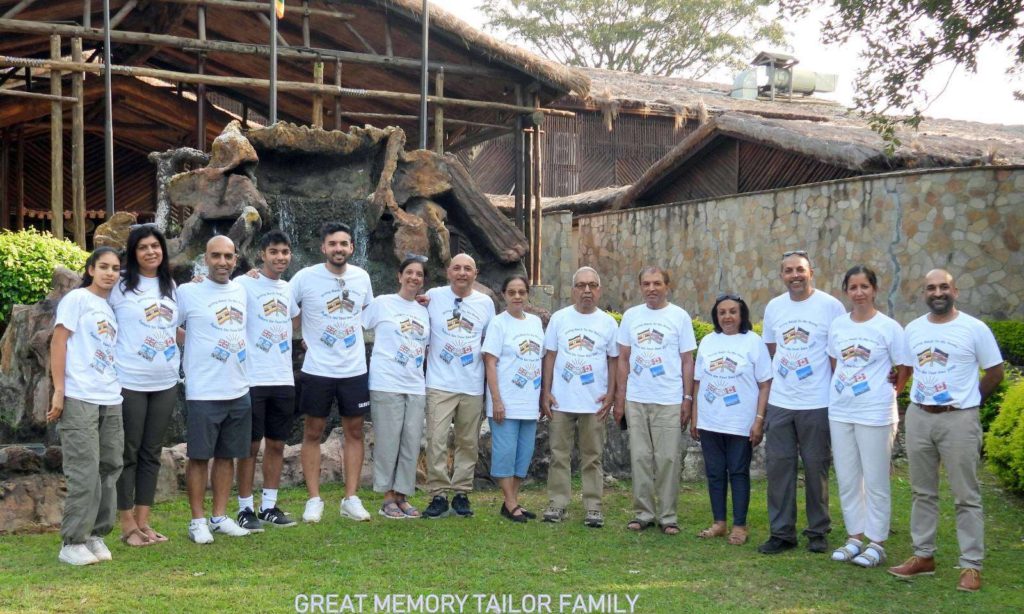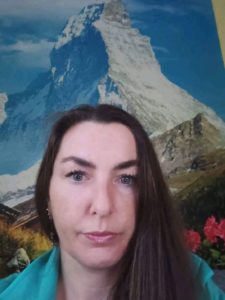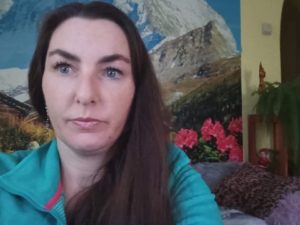Interview with Sylwia
We received the wonderful donations that you and your loved ones and friends so unselfishly gave. These donations are like no other we have received in this lifetime or that we’ll ever receive. We know that thoughtful, caring and loving people made the donations possible. We can only express our deepest gratitude and always keep you in our thoughts and prayers. While we may not know many of you in your family, we know things about you that many around you will never see, thanks for remembering your history and indeed you made it to Uganda. We understand that light and love in you towards Hope for Orphans and Rural Development (HORD) and the entire community that we serve are much deeper than one could imagine. We have cried tears for you. We will always remember you, the entire family and your loved one, and in our remembering, we will be called to always act to our highest good. We have known the best we can be – you have modelled it for us by donating towards the constructing a three-class room block at HORD Orphanage school. We will live in gratitude for your absolute and inconceivable generosity.
However, in order to continue with the project and help more orphans and vulnerable kids in our area of operation, We at HORD still greatly appreciate any more help as we need to add on more class rooms, putting up an office, library, computer room, staff room, kitchen and an Art room.
In deepest gratitude, Simon Nzigu Executive Director Hope for Orphans and Rural Development (HORD) www.horduganda.com



By Simon Nzigu
HORD believes that all children, adolescents and young people have the right to have control over their sexual and reproductive health and lives, free from coercion, violence, discrimination, and abuse. Yet, one in every five girls are denied this right as they are married before reaching the age of 18. We know that girls’ ability to make their own decisions about their sexual and reproductive health, including whether to have children, will only happen when we address child, early, and forced marriages. HORD programmes lead to long-term, gender-transformative change for girls’ and women’s lives if they address the subject of sexuality. But still have a long way to go until these issues are routinely intertwined in programmes and policies. What is preventing truly gender-transformative. Why are we still struggling to recognise that most girls are not looking for “family planning” services? Is it the stigma and taboo related to girls’ sexuality, is it the fear of giving power to young people themselves, or is it the reluctance that we all face to step outside our comfort zones and fight patriarchal power systems? How often have you heard the statements below?
- “The family honour is dependent on the girl’s purity”
- “Marriage will protect girls”
- “Girls and women belong in the home”
- “Motherhood and marriage are essential for girls in our religion”
- “All girls are heterosexual”
- “It is a girl’s fault if she is sexually harassed”
Negative gender bias and harmful social norms are all too common. HORD can only enable girls’ control of sexual and reproductive health if we address these beliefs and social norms. We seek to embrace the positive, pleasurable and healthy aspects of young people’s sexuality development and first sexual experiences. A positive approach to sexuality education challenges the myths and negative norms which often reinforce the stigma and shame on adolescent sexual activity which focus on negative consequences such as unintended pregnancies and sexual violence. We need a more holistic, comprehensive and multi-dimensional approach to support girls to make their own decisions for their own wellbeing and to expand their opportunities in life as they reach adulthood. In my region working with traditional leaders of authority is instrumental for they are the custodians of our beliefs and customs. We have found that transforming harmful norms can start with transforming chiefdom by-laws. This is supported by our work with young people, establishing mechanisms for monitoring, accounting and reporting at all levels from community to national. Adequate support, training and flexible funding must be provided to young people engaging in advocacy and activism, and strong safeguarding measures must be put in place.
Uganda, a landlocked country in East Africa, has faced numerous challenges over the years, including armed conflict, displacement, and poverty. In such difficult circumstances, humanitarian aid plays a crucial role in providing support, alleviating suffering, and helping communities rebuild their lives. In this blog post, we will explore the importance of humanitarian aid in Uganda and its impact on the lives of its people.
- Addressing Basic Needs: Humanitarian aid focuses on addressing the basic needs of individuals and communities affected by crises. In Uganda, where many people lack access to clean water, food, healthcare, and education, humanitarian organizations step in to bridge the gap. Aid programs provide emergency relief supplies, establish healthcare facilities, distribute food and water, and support educational initiatives, improving the quality of life for vulnerable populations.
- Promoting Health and Well-being: Health crises, such as the HIV/AIDS epidemic and outbreaks of diseases like malaria and cholera, have significantly impacted Uganda. Humanitarian aid organizations work tirelessly to provide medical assistance, essential drugs, and preventive measures to combat these health challenges. Through vaccinations, health education, and access to healthcare services, aid initiatives contribute to reducing illness, improving overall health, and enhancing the well-being of Ugandans.
- Supporting Education and Empowerment: Education is a powerful tool for change and empowerment. Unfortunately, many children in Uganda are unable to access quality education due to poverty and displacement. Humanitarian aid efforts aim to address this issue by establishing schools, providing educational materials, and training teachers. By investing in education, humanitarian organizations enable children to gain knowledge and skills, empowering them to break the cycle of poverty and build a better future.
- Fostering Sustainable Development: Humanitarian aid not only focuses on immediate relief but also strives to foster sustainable development in Uganda. By implementing projects that promote agriculture, clean energy, and economic opportunities, aid organizations help communities become self-reliant. For instance, initiatives that introduce sustainable farming techniques, support small-scale businesses, and provide vocational training contribute to long-term development, reducing dependency on aid and promoting resilience.
- Building Resilient Communities: Uganda has faced prolonged periods of conflict and displacement, resulting in the formation of vulnerable communities. Humanitarian aid plays a vital role in supporting these communities, providing shelter, protection, and psychosocial support. Aid organizations collaborate with local partners to strengthen community structures, enhance social cohesion, and build resilience in the face of future challenges. By empowering communities to become active participants in their own recovery, humanitarian aid helps them regain control over their lives.
Humanitarian aid in Uganda is a lifeline for communities affected by crises, providing them with essential support, healthcare, education, and opportunities for a better future. The work of humanitarian organizations contributes to the well-being and resilience of Ugandans, fostering sustainable development and empowering individuals and communities to overcome adversity. By understanding the importance of humanitarian aid in Uganda, we can appreciate the efforts made to create positive change and work towards a more inclusive and compassionate world.



